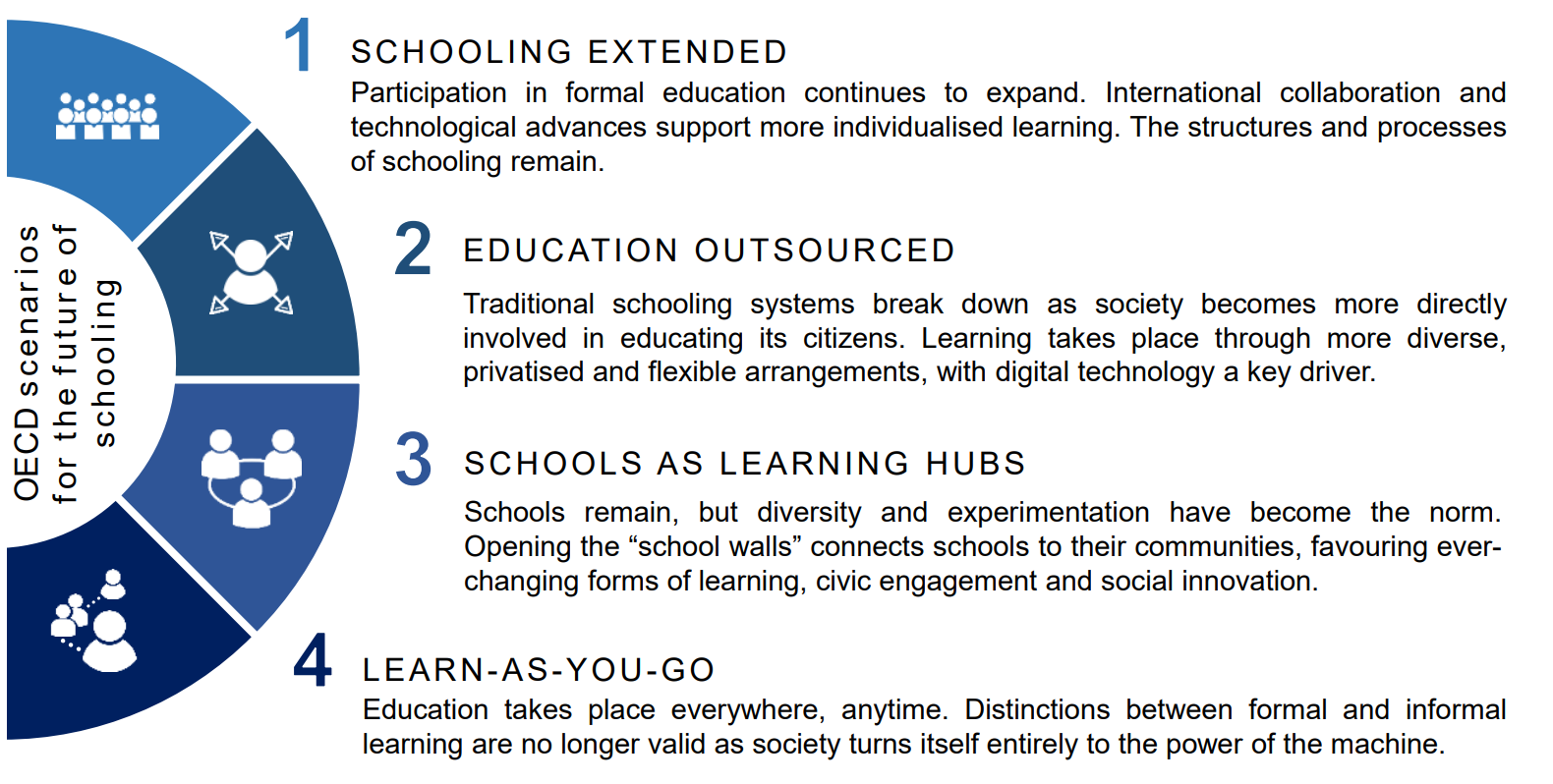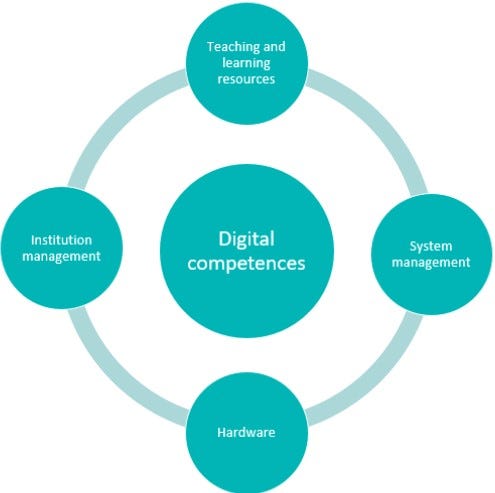As AI rapidly advances, it's becoming evident that it is starting to outpace humans in critical areas such as reading, mathematics and scientific reasoning. This prompts us to reconsider our educational approach. We must determine which skills to prioritise, which to phase out, and where to place greater emphasis in an AI-influenced world. We need to anticipate how learning methods and teaching practices will evolve. At the same time, more profound questions about the overall goals of education are emerging as the cognitive, physical and social capabilities of AI continue to rise.
Future of education and skills
Education prepares students for their future, but it is increasingly difficult to understand what this means in a world in constant change. To remain relevant, education systems must ground themselves in robust evidence while using imagination to innovate and future-proof their strategies.

Key messages
The digitalisation of every corner of society, accelerated in education by the COVID-19 pandemic, offers immense opportunities to rethink and improve the quality and equity of education. By adopting an ecosystem perspective that encompasses digital technologies, AI, smart data and digital governance, while prioritising human competences, countries can begin a transformative journey in education. This journey underscores the imperative for education systems to develop and assess a broad set of knowledge, skills, attitudes and values to prepare students for the future. Fostering creativity, critical thinking and innovation skills has become essential for individuals to thrive in a digital-centric world.
Global challenges such as climate change, inequality and conflict, coupled with rapid technological progress, are contributing to a world of unprecedented complexity. Education systems need to adopt a forward-thinking and research-informed approach to reshape how, where, why and when we learn in view of these complex demands. A proactive stance is necessary to enable the development of education policies and practices that are not just reactive to current challenges but are also strategically prepared for future educational demands.
Context
The world is increasingly complex and uncertain
Much of our thinking of the future is linear and based on extending currently existing trends. But trends slow, accelerate, bend and break. Unforeseen events can disrupt even long-standing trends. What futures can we imagine for education? Which lessons can we learn from these futures to inform our actions today?
The four OECD Scenarios for the Future of Schooling

Countries now provide a minimal digital infrastructure
Most countries now maintain longitudinal student information systems and other digital management tools that support their educational processes: alert systems to enforce compulsory education, admission management, evaluations, etc. They also support the provision of digital teaching and learning resources and training.

Related publications
Programmes and projects
-
Preparing for the future means taking a careful look at how the world is changing. Reflecting on alternative futures helps anticipate and strategically plan for potential shocks and surprises.Learn more
-
Data and digital technologies are among the most powerful drivers of innovation in education, offering a broad range of opportunities for system and school management, as well as for teaching and learning. But they also create new policy issues as countries face challenges to reap the benefits of digitalisation in education while minimising its risks.Learn more
-
Artificial Intelligence (AI) and robotics are becoming increasingly sophisticated at replicating human skills. The evolution of these technologies could fundamentally transform work over coming decades and deeply affect education’s current role in providing skills and preparing learners for future work.Learn more
-
The Centre for Educational Research and Innovation (CERI) provides and promotes international comparative research, innovation and key indicators, explores forward-looking and innovative approaches to education and learning, and facilitates bridges between educational research, innovation and policy development.Learn more
-
The Research, Development and Innovation (RDI) programme established by the PISA Governing Board in 2018 explores how different areas of the assessment programme (e.g. test design, scoring methodologies) can be improved.Learn more
-
Understanding the nature of 21st Century childhood is crucial for an education that is increasingly expected to support students to thrive in both a digital and non-digital world, delivering academic learning while also building physical and emotional well-being. This has implications for the skills, capacity and resources required.Learn more
-
The OECD’s programme on education and skills policy support policymakers in their efforts to achieve high-quality lifelong learning, which in turn contributes to personal development, sustainable economic growth, and social cohesion.Learn more
-
Since 2013, the OECD has gathered evidence on how school resource policies work in different contexts. The focus is now on digital resources to enable countries to learn from each other in the digital transformation of their education.Learn more
-
Across the OECD, enormous investment and effort has aimed to reinforce the quality, production and use of education research in policy and practice. Despite this, strengthening the impact of research in education policy making and practice remains a challenge for many systems.Learn more







